Book-Keeping and Accounting: Policies, Procedures, Codes, and Systems
VerifiedAdded on 2022/09/23
|5
|781
|28
Homework Assignment
AI Summary
This assignment delves into the core principles of bookkeeping and accounting, addressing various aspects such as payroll processing policies, accrual-based bookkeeping, and the code of conduct for professionals in the field. It explores methods for identifying qualified professionals and highlights industry best practices. The assignment also covers legislative and regulatory requirements, including the Corporation Act 2001 and Australian accounting standards. Furthermore, it discusses the development of user-need systems, emphasizing data gathering, requirement establishment, and system maintenance. It also addresses team management, time management, feedback mechanisms, and problem-solving within a technological context. Finally, the assignment identifies professional development needs, such as effective communication and competency requirements, providing a comprehensive overview of the accounting profession.
1 out of 5
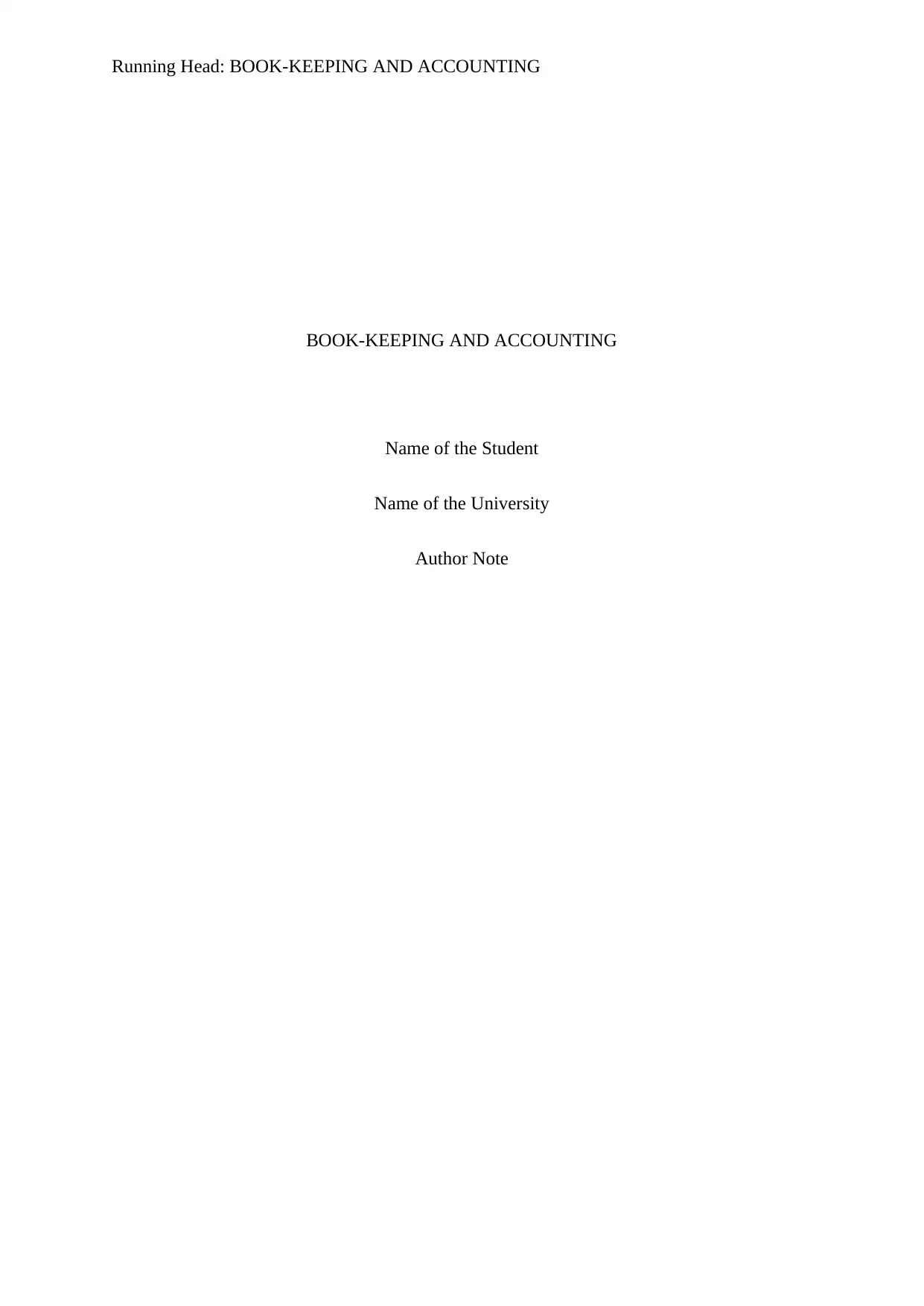
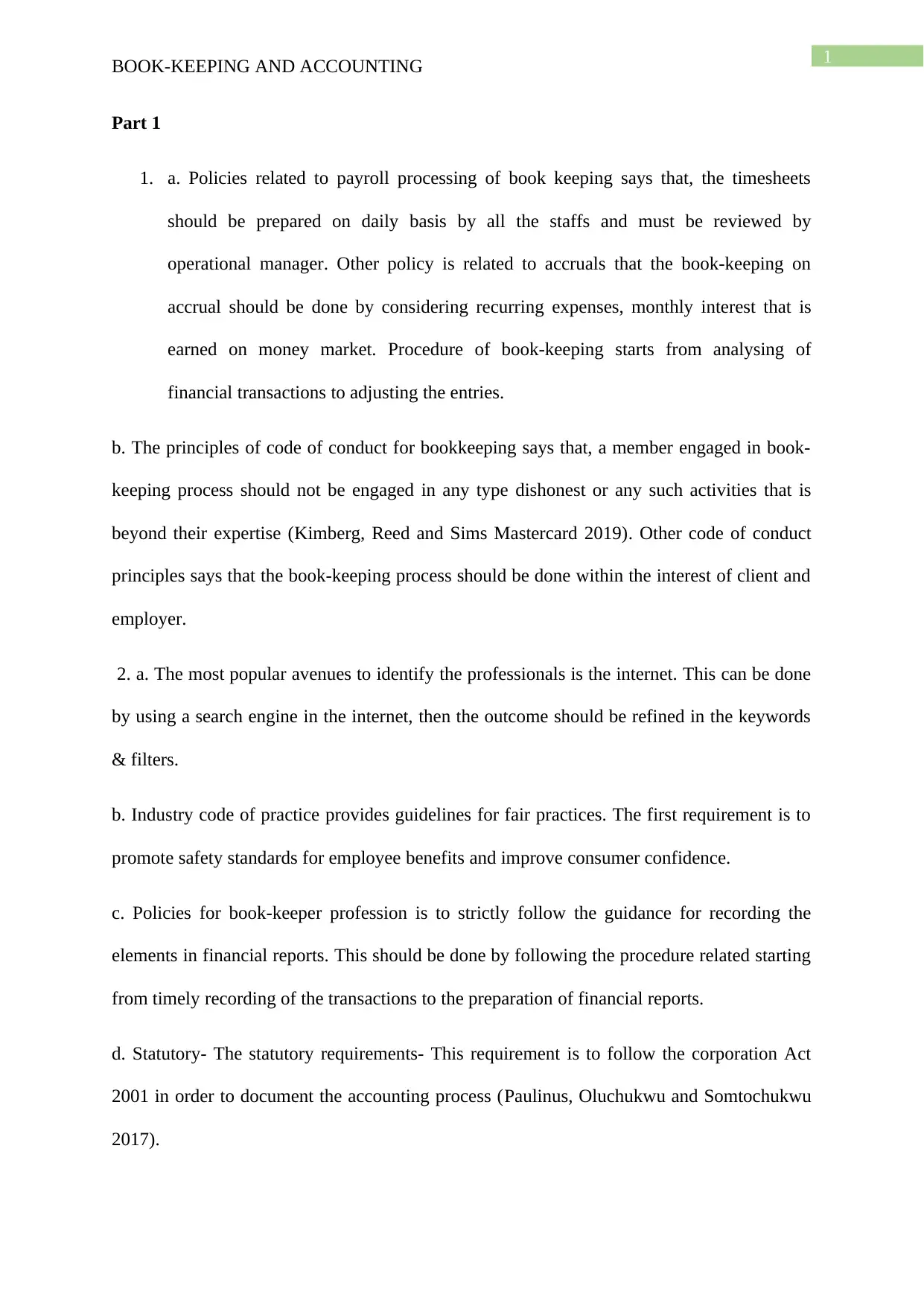
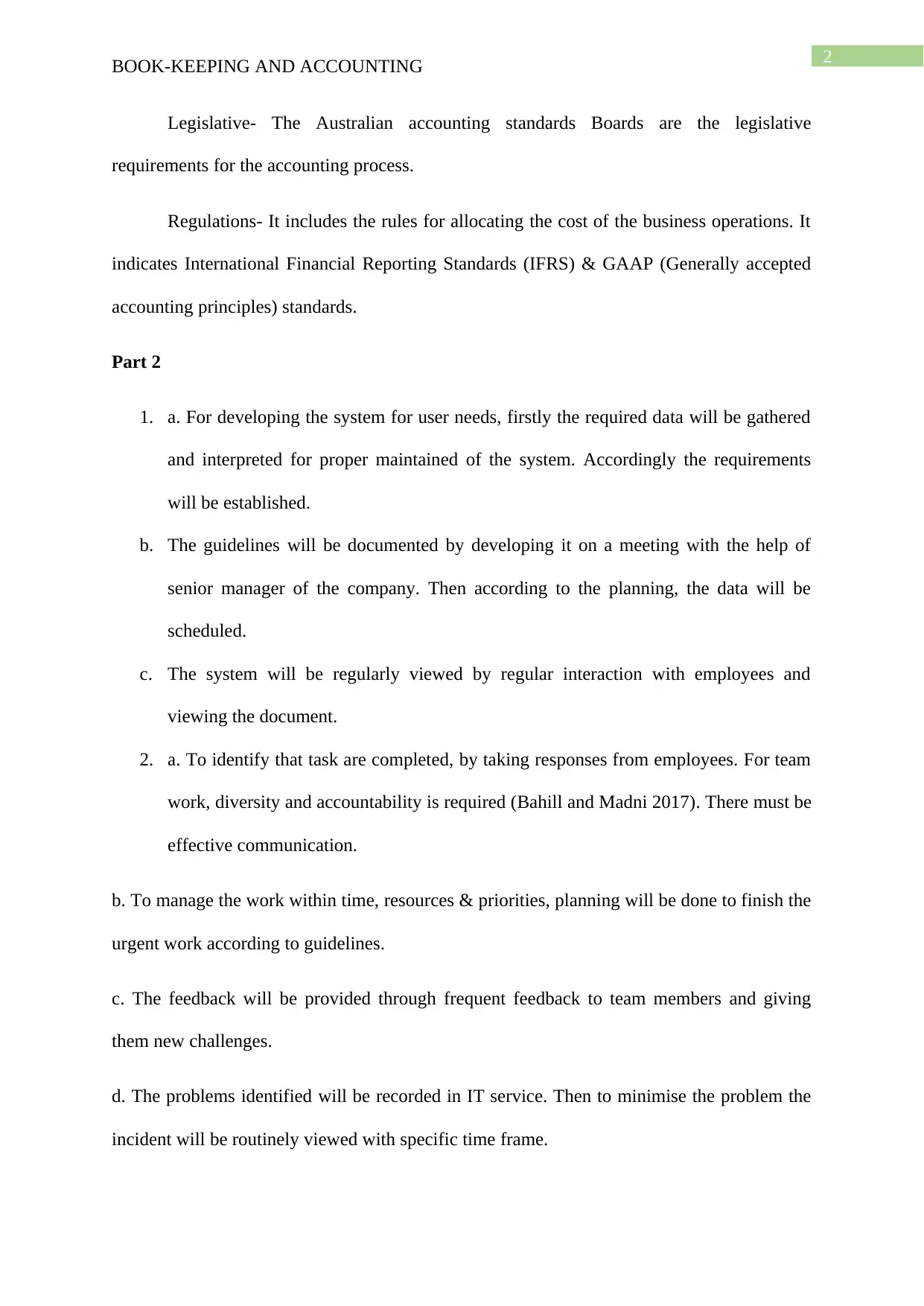

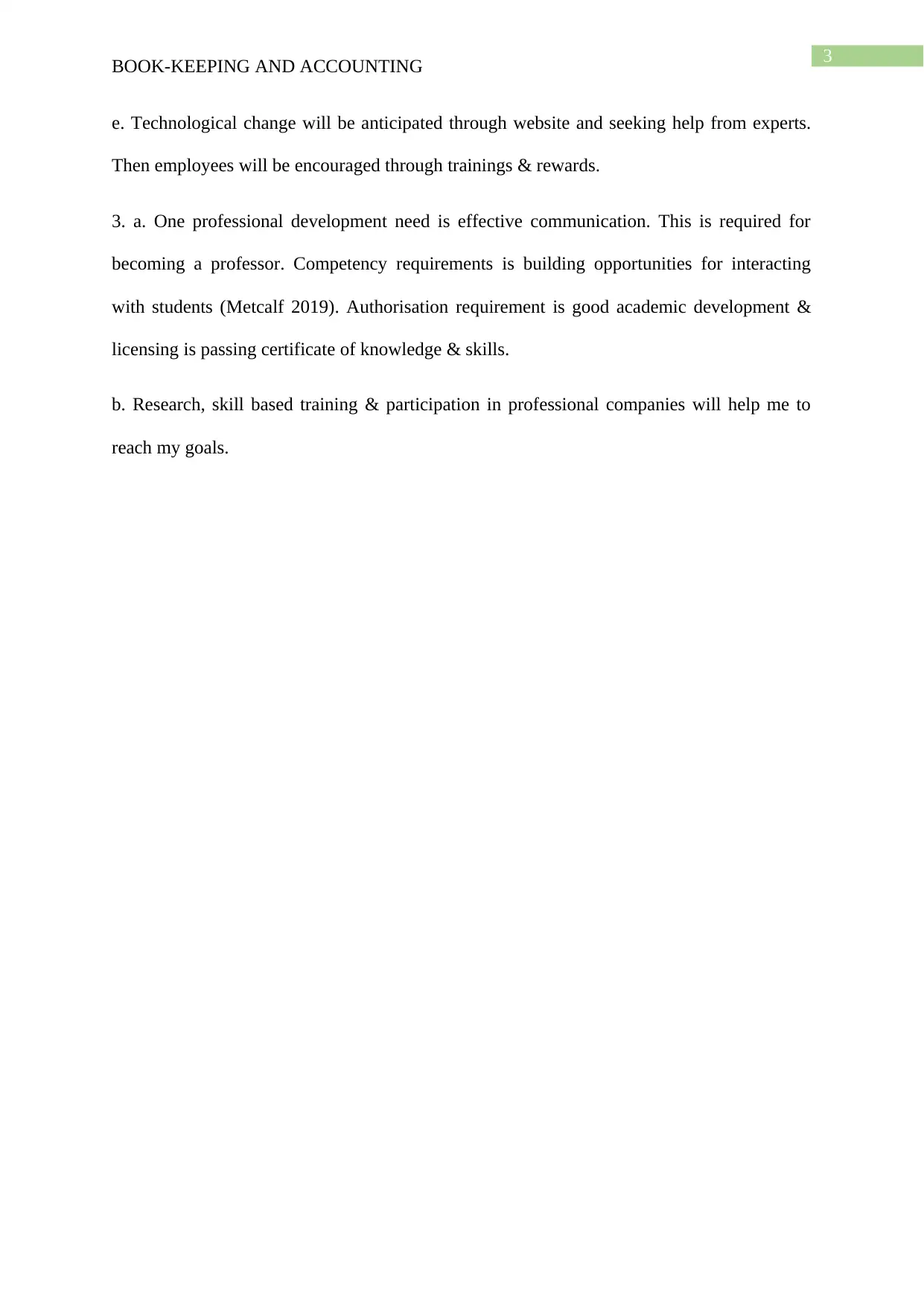
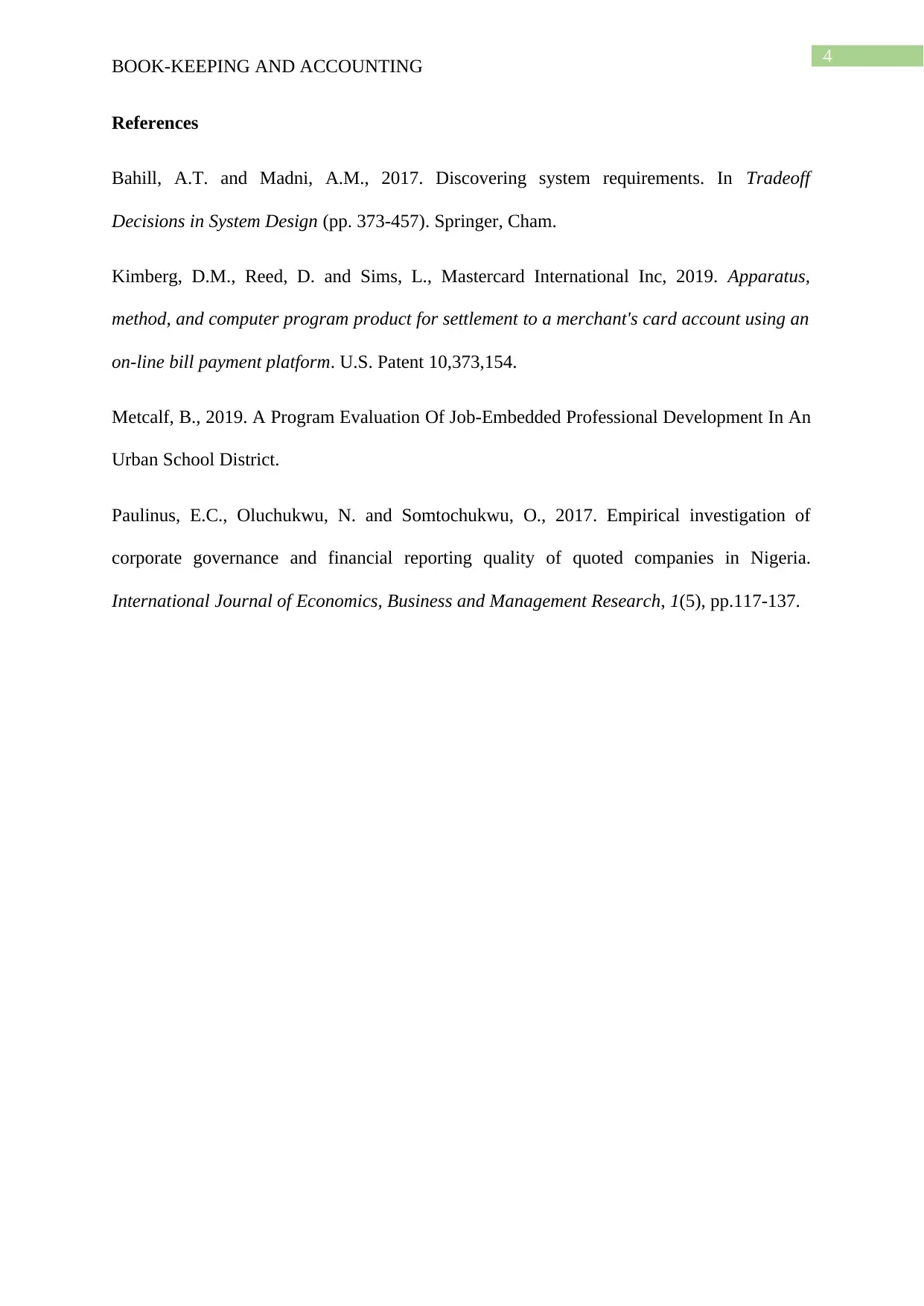





![[object Object]](/_next/static/media/star-bottom.7253800d.svg)